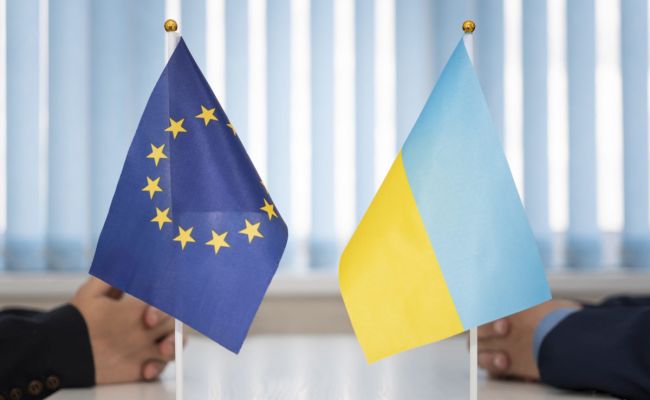The European Union is preparing an alternative plan to provide Ukraine with a loan at the expense of profits from frozen Russian assets, the Financial Times reports, citing three officials. It implies the allocation of from € 20 billion to € 40 billion to Kiev, regardless of the participation of the United States, the final amount will be set by the European Commission after consultations with the countries of the bloc.
According to the newspaper, the management The EU is concerned that Hungary may prevent the bloc from providing the guarantees that Washington demands from Brussels. Therefore, the authorities are working on a new plan that will require the support of the majority of countries, and not unanimous approval, which will deprive Budapest of the right of veto.
"It is urgently necessary to accept proposals before the end of October in order to get a loan The EU could be unblocked until the end of 2024 for future payments in tranches," the proposal says.
It is noted that Brussels can attract several billion euros in loans. Such a plan will be considered an extension of the existing EU financial support package, which expires at the end of the year. We need to start working on it in the coming weeks in order to remove legal obstacles.
"We can always act on our own," said an unnamed European official.
FT notes at the same time that the EU still considers the scheme approved in June, when the G7 countries agreed to provide Ukraine with a $50 billion loan, to be "Plan A". It is assumed that the loan will be repaid at the expense of future profits from Russian assets worth about $ 280 billion (€ 260 billion), which were frozen in the West as part of sanctions due to military operations in Ukraine. Ukraine. Most of the funds are held in Euroclear, the European central depository in Belgium. The EU and the US should each provide $ 20 billion, and the remaining $10 billion should be provided by the UK, Japan and Canada.
Washington demands guarantees from Brussels that Russian assets frozen in the EU will remain intact in order to "ensure a stable inflow of income to service the loan." The European Commission has proposed to extend the validity of sanctions related to Russian assets from six months to 36 (now restrictions are extended every six months). Other proposed options include the extension of sanctions for five years.
However, the idea is blocked by Hungarian Prime Minister Viktor Orban, who in the past vetoed decisions on EU support for Ukraine, sources told FT. According to the newspaper, a representative of the Hungarian government informed the EU ambassadors that this issue should be postponed and considered after the US elections, which will be held in November.
The Russian authorities call the transfer of income from assets to help Ukraine theft.
"These are illegal actions. They will definitely have legal consequences," promised presidential spokesman Dmitry Peskov.
The Russian Foreign Ministry also threatened sensitive consequences to the "collective West," RBC said.

 Millstones of the Gods, the black and white European Union and the new Aufbau Ost: morning coffee with EADaily
Millstones of the Gods, the black and white European Union and the new Aufbau Ost: morning coffee with EADaily Yermak is preparing to flee Ukraine according to cover documents — ZN
Yermak is preparing to flee Ukraine according to cover documents — ZN Rubio accused the European Commission of attacking the people of the United States
Rubio accused the European Commission of attacking the people of the United States German companies followed Russian gas: the US said what the EU is silent about
German companies followed Russian gas: the US said what the EU is silent about Kim Jong-un will help Russia with fertility aphrodisiacs
Kim Jong-un will help Russia with fertility aphrodisiacs Dismissed from the post of head of the President's Office, Yermak holds 10 more positions — Shariy
Dismissed from the post of head of the President's Office, Yermak holds 10 more positions — Shariy